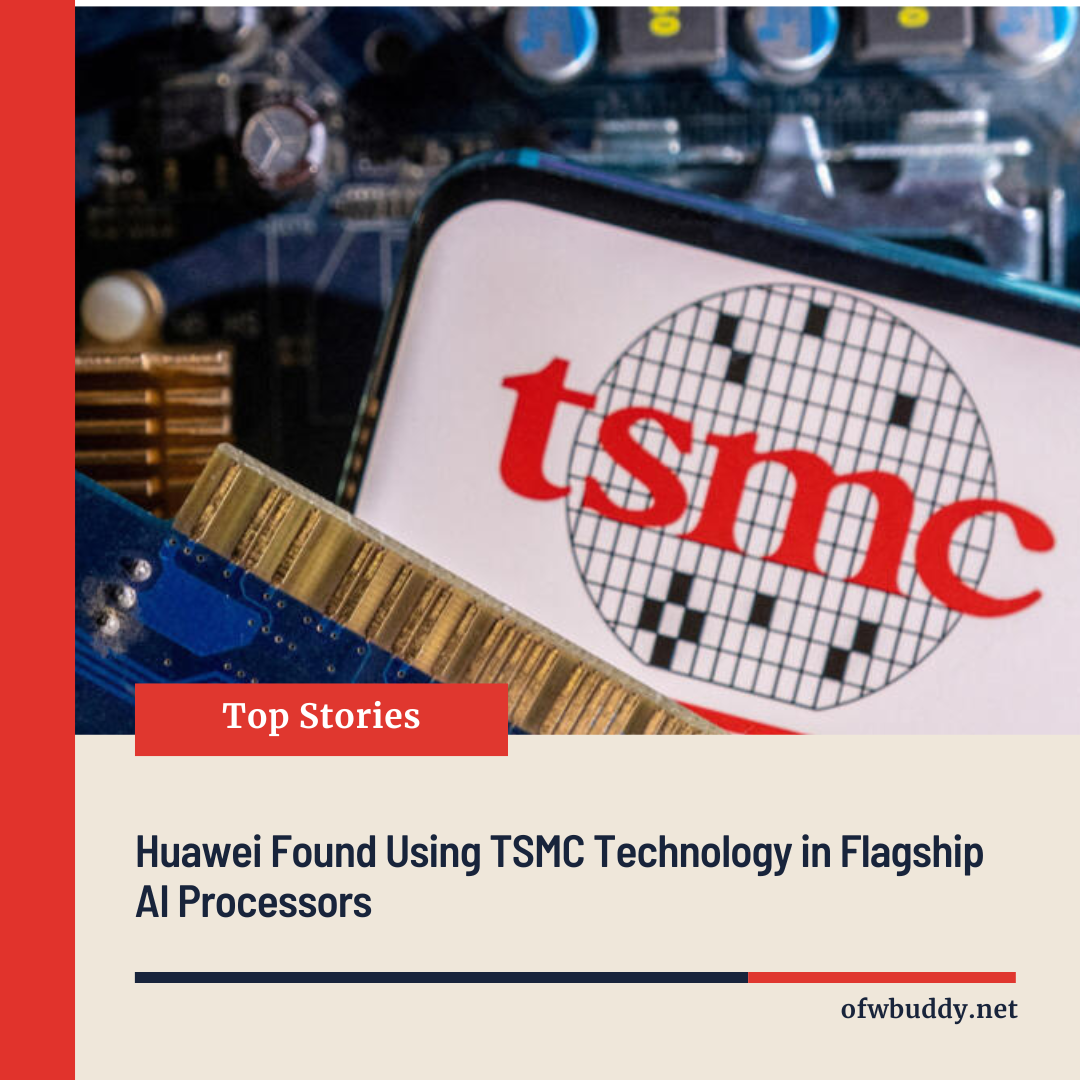October 3 – A recent teardown of Huawei’s latest high-end Ascend 910C artificial intelligence processor has revealed that the chip still incorporates components from major Asian semiconductor firms, according to research company TechInsights.
Despite Beijing’s repeated claims of advancing toward self-sufficiency in semiconductors, the findings show that Huawei’s top-tier AI hardware continues to rely on foreign technology.
TechInsights disclosed that multiple samples of the Ascend 910C contained bare dies manufactured by Taiwan Semiconductor Manufacturing Co. (TSMC), along with high-bandwidth HBM2E memory sourced from Samsung Electronics and SK Hynix. Two different versions of the chip were found to include the latter’s memory.
In response, TSMC clarified that the wafers in question were analyzed in October 2024 and are no longer being produced. “Shipments and production of this wafer have since ceased. TSMC has always complied with all export control regulations,” the company said in a statement.
Meanwhile, questions remain about how Huawei obtained the HBM chips, which were introduced by Samsung and SK Hynix several years ago.
SK Hynix stressed that it has not engaged with Huawei since restrictions took effect in 2020. “SK Hynix is committed to full compliance with all applicable laws and regulations, including U.S. export rules,” the company said.
Samsung also reiterated its adherence to international trade restrictions, stating that it “strictly complies with U.S. export regulations” and has no dealings with blacklisted entities.
The revelations highlight the ongoing challenges facing China’s chip sector as it seeks to reduce dependence on foreign suppliers while advancing in critical technologies like artificial intelligence.

